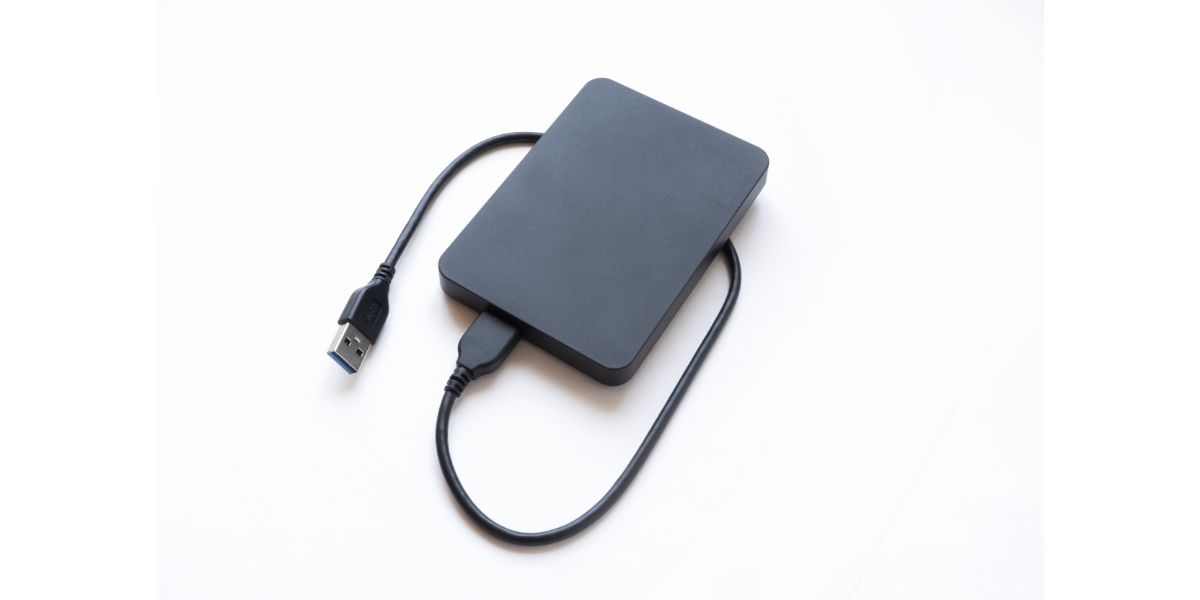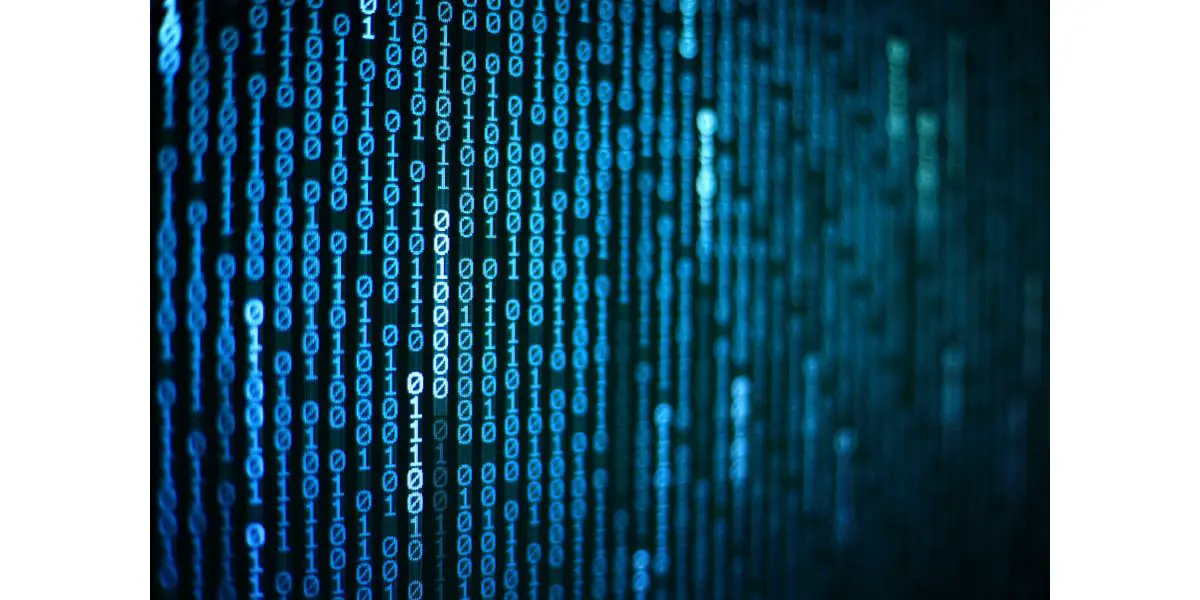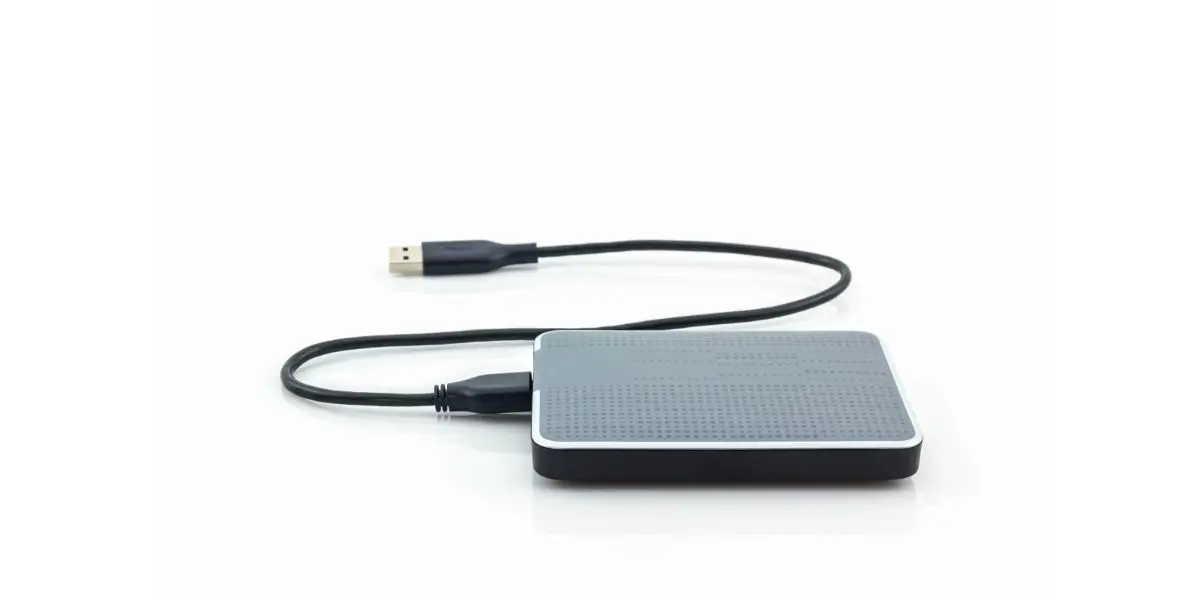Disclaimer: This post may contain affiliate links, meaning we get a small commission if you make a purchase through our links, at no cost to you. For more information, please visit our Disclaimer Page.
External or portable hard disk drives (HDD) allow you to bring your files everywhere. Unfortunately, they’re also more prone to failure, which puts your files at risk. So, let’s talk about the most common reasons portable hard drives fail, including the signs that you need a replacement.
Table of Contents
1. Mechanical Failure
Portable hard drives are mechanical devices with several moving parts, making them more susceptible to mechanical failure. Almost every part of an external hard drive is a potential SPOF (single point of failure), including the ports it uses to connect to a computer.
Some portable HDDs use an AC adapter that can fail more often than the actual hard drives. When it happens, the HDD stops working, and an average user (without suspecting an AC adapter failure) might think that their hard drive failed.
Aside from this, there’s also the risk of the USB ports and connectors going bad. Unlike internal hard drives that use SATA cables that you only plug in once, you need to plug an external hard drive in and out of different computers several times a day.
Both of these and the risks of internal components going bad over time are some of the reasons for portable HDD failure. There’s also the dreaded “infant mortality rate,” where mechanical devices, like an external HDD, fail within 2 to 3 months after purchase due to poor manufacturing practices or factory defects.
2. Excessive Shock Due to Mishandling
Portable hard drives allow you to carry your files wherever you go; it’s one of their biggest selling points. However, taking hard drives with you makes them prone to accidental drops. One bad drop can cause a portable HDD to fail, especially those without proper shock protection.
Most manufacturers account for accidental drops, making them more secure than the fragile build of internal HDDs. However, since we use external hard drives in uncontrolled environments, it can be challenging to set safety measures for mishandling without making the hard drives much more expensive.
Several solutions are available to users to help protect a portable hard drive, including a shock-resistant case. If you’re looking for one, we recommend the AxiGear External Hard Drive Carrying Case because it securely holds the HDD with foam protection. We like this carrying case because it provides all-around protection for HDDs, SD cards, and micro SD cards.
If you’re still looking for a portable hard drive that you can use, and you’re planning to bring it everywhere, it would be best to get one that offers shock resistance. We recommend the LaCie Rugged Portable Hard Drive because its all-terrain construction makes it more resistant to mishandling than other portable HDDs. It’s a bit more expensive than other portable hard drives, but its reliability and durability make it worth the investment.
3. Contains Too Many Files
When you open a folder, the hard drive loads all of the files’ metadata, including those you don’t need. Over time, this can strain its performance and lead to clicking sounds or what many people call the click of death.
It can be due to user mishandling, mismanaging the hard drive, or simply low-quality production. Still, if you add the stress of loading too many files over time, your external HDD will inevitably fail.
This issue will occur regardless of the size of the portable hard drive that you’re using. However, an unorganized 5TB HDD full of files will fail much faster than an unorganized 1TB HDD full of files.
Fortunately, you can minimize the strain on your portable hard drives by keeping your files organized. By doing this, the HDD won’t have to work too much whenever you open a file. Being a mechanical device, reducing its workload can significantly improve its lifespan. It’s also one reason spending a bit more for higher-quality portable hard drives is worth it.
4. Corrupted Firmware
Portable HDDs use firmware that makes it easier to interact with the device. The hard drive uses the firmware to read and open the files or write new files to the hard drive. Since it operates complex firmware, there are times when it gets corrupted, making the HDD unusable.
If some parts of the firmware are damaged, it’s still possible to use an external hard drive. You can also recover some of the files when it fails. However, if it’s severely damaged, even the most experienced data recovery companies won’t be able to recover your files.
Software failure is much worse for portable HDDs than hardware failure because of its recoverability. Unfortunately, corrupted firmware can happen to any brand, model, or build. However, getting your hard drive from a reliable brand gives you more assurance that you’re getting the best firmware possible while minimizing the chances of it being corrupted.
5. Corrupted or Malicious Files
Corrupted or malicious files can cause several issues to computers, but it’s actually the hard drives that suffer the most when there’s a malicious file in the system. It can cause various errors in its function and may even lead to corrupted firmware.
Since portable hard drives connect to different computers, they’re more susceptible to malicious files that can cause them to fail. It’s even harder to determine which of the computers you’re using contains a malicious file that can corrupt the hard drive.
Digital security is essential, but it becomes even more crucial if you use a portable hard drive containing all your valuable files. Even if you’re using a portable HDD, it would be best to use it exclusively on terminals you trust. Regularly scanning your HDD can also help you avoid malicious files. Most importantly, you must avoid downloading files from unknown or untrusted sources.
6. Unstable Power Supply or Exposure to Power Surges
Internal and external hard drives need a power supply to work. When the power supply is unstable or there are frequent power surges, it’ll be easy for the hard drive to fail. The more power surges it encounters, the more likely it is to experience the “click of death” or the status where the hard drive produces continuous clicking noises.
Although power surges or unstable power supply can affect internal and external hard drives, the click of death is more likely to occur with external HDDs. An internal HDD, however, has a dedicated power supply that has all the safety features and will provide you with sufficient protection from power surges.
A portable hard drive doesn’t have as many mechanisms built inside it to protect it from power surges. When you connect a portable hard drive to a laptop, it will only depend on the nominal power it gets from the device.
That’s why if you’re living in an area where power outage is common, it would be best to consider using a power strip with surge protection. Doing this will help you protect all of your devices and the files you have inside your hard drive.
7. Exposure to Magnets
Despite all the stories you’ll find online, ordinary magnets can’t delete the files on your hard drive. The magnetic force from regular magnets is also insufficient to cause HDDs to fail instantly. There will be some noticeable changes in its performance, but a powerful magnet will stop it from working.
Although these won’t immediately affect your portable hard drives, magnets can add stress to their mechanism, and continuous exposure to them can lead to the failure of your HDD. External and internal hard drives are both susceptible to magnets, but the risk of an external HDD coming into contact with a powerful magnet increases if you’re taking it outside with you.
8. Exposure to Liquid and Heat
Exposure to liquid and heat are two of the most common reasons for portable hard drives to fail. In fact, it can happen even if you’re only inside your room or office. Coffee or water spills can cause damage to a portable hard drive and might even lead to failure.
Direct exposure to heat can also lead to a mechanical failure that may eventually cause the hard drive to stop working. It can either be because of use under direct sunlight or operating the hard drive in a room that exceeds the manufacturer’s recommended operating temperature.
Exposure to liquid and heat isn’t as common for internal hard drives as for external hard drives. If you’re using a portable HDD, it will always be outside and exposed to varying elements that can affect its performance.
Even if you’re using two portable hard drives and place one (HDD A) inside a system unit’s case, it will last much longer than the one (HDD B) that you’re always taking with you.
Both may be of the same model and quality, but HDD A will be less exposed to elements, securely inside a case, and doesn’t move as much. These situations are the opposite of HDD B, which has multiple points of failure, making it prone to issues with its operation.
4 Signs You Need to Replace a Failing External Hard Drive
Even if you’re taking care of your portable hard drive, there will still come a time when it won’t be ideal to use it as storage for all your files. Fortunately, there are signs that your HDD is having issues, giving you enough time to move your files to another storage before it stops working.
Let’s talk about the four signs you might need to consider getting a new portable hard drive.
Disk Suddenly Becomes Undetected
Suppose your portable HDD is connected to a computer, and it suddenly becomes undetected. You may assume that it’s because of a faulty hard drive, but there are several other reasons for it, including a faulty USB port, a damaged USB cable, or a failing hard drive. Although it may still take some time before your hard drive completely fails, knowing this will allow you to prepare and consider the options that you have for your backup storage.
A faulty USB port or damaged cable can lead to an unstable power supply, eventually leading to your hard drive failing. It would be best to rule out all the possible causes for the undetected hard drive as soon as possible because this will also help you prevent even more significant issues with your external HDD.
Noises Coming From the Hard Drive
We’ve mentioned the click of death throughout this article, and it’s one of the most telling signs you need to start looking for a replacement for your HDD. The clicking sound comes from the pin that the hard drive uses to read and write on the hard drive. When it starts to fail, your hard drive will experience several issues that only point to it failing soon.
Missing or Corrupted Files
If you’re missing some files or the documents you’re opening become corrupted, it would be best to start transferring all the files you have inside your hard drive. When there are missing files in your HDD, it means there are corrupted parts in the firmware that prevent it from reading or opening specific files.
It can be frustrating to transfer files from one hard drive to another when there are corrupted files because it’ll abruptly stop the transfer process. So when this happens, try to “batch” the files and transfer them according to importance. That way, you won’t have to worry about failed transfers whenever you encounter a corrupted file.
The Computer Freezes When Opening a Folder
When you open a folder inside the hard drive, it will load all the files before they appear in your File Explorer. If you’re using a faulty hard drive, it will take some time before it opens all the files, which may seem like your computer freezes.
Computer freezes don’t necessarily mean that your hard drive is already failing, but it’s a sign that you have to be more careful when using it and start saving up for a replacement where you can safely store a backup for your files.
Conclusion
There are several reasons for a portable hard drive to fail. However, knowing all the weak points of an HDD will help you prolong its lifespan and avoid everything that may cause it to fail.



